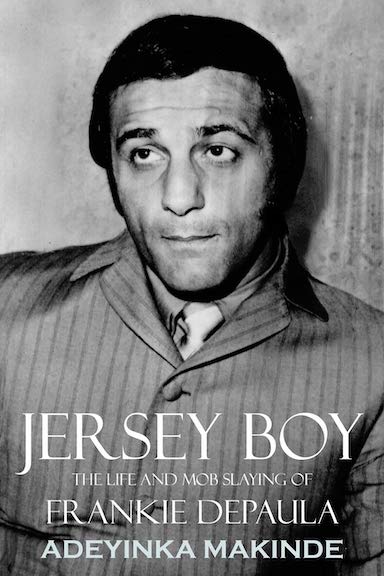
Sport: Boxing
Born: July 4, 1939
Died: September 14, 1970
Town: Jersey City, New Jersey
Francis DePaula was born July 4, 1939 in Jersey City, NJ. Frankie grew up in a working-class neighborhood and got involved with local street gangs starting in his early teen years and was arrested multiple times as a youth. He also happened to be a tremendous athlete—an accomplished swimmer and diver and a tough-as-nails football player. Frankie had a mean temper and quick fists, earning a reputation as an accomplished street fighter. At the age of 22, Frankie decided to give pro boxing a try. He enjoyed some initial success and his powerful right hand made him a crowd favorite.
Outside the ring, Frankie continued to tangle with the law, delaying his career as a light heavyweight until 1966, when he was in his late-20s. His first manager, Patty Amato, died in a suspicion electrocution mishap and his career was guided thereafter by Gary Garafola, a nightclub operator who was rumored to have mob ties. Garafola immediately started getting him bigger purses in better venues.
Frankie never had much formal training in the ring—he was a thunderous puncher who could be outworked by quicker, more experienced fighters. But if he could lure an opponent into going toe-toe-toe, the odds suddenly tilted in his favor. Referee Ron Lipton once said that Frankie hit “harder than a winter on welfare.”
In 1968, Frankie fought former champion Dick Tiger, one of the most difficult boxers in history to knock down. He sent Tiger crashing to the canvas twice, but lost the 10-round decision. The Ring magazine voted their encounter Fight of the Year.
Whenever Frankie fought, promoters were able to fill a lot of seats. Among the big names sitting ringside at his bouts were Lou Monte, Jimmy Rosselli and Frank Sinatra on several occasions. Light Heavyweight champion Bob Foster took notice of his star-studded following and gave Frankie a title shot. The bout opened with Frankie sending Foster to the canvas, bringing fans to their feet. Foster regained his senses and knocked Frankie down three times, including a push. By the rules of the day, the referee had to stop the fight, even though Frankie was just getting started. There were whispers of a fix after the two-minute championship fight.
Despite his two high-profile losses, and despite turning 30, Frankie was still considered an up-and-comer, with big paydays ahead. Unfortunately, he also continued to hang out with his old gang buddies. He was picked up by the cops during the investigation of a copper-stealing ring and, apparently, fear spread that he would rat out the ringleaders in order to preserve his boxing career—and that they might, in turn, roll over on their higher-ups.
On May 14, 1970, Frankie was gunned down in an alley adjacent to the Jersey City home of the stepdaughter of a local mob boss. Frankie never left in the hospital and died four months later. According to a 2010 book, Jersey Boy, Frankie’s brother likely smothered him with a pillow…possibly at his own request.